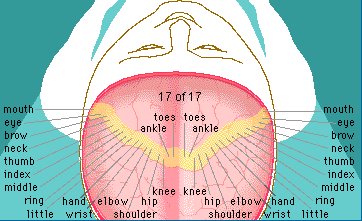Gestation, birth and early childhood are remarkable stages in a person's life. An ever-growing body of research indicates that the experiences one has during these stages profoundly affect one's long-term physical, emotional, and mental health. Brain development, learning capacity, emotional stability, physical coordination, early language skills, and self-esteem are all affected by life's earliest experiences. Neurological research shows a direct link between individuals' experiences and the development of their nervous systems. This means that what infants or prenates experience not only impacts their ability to form bonds and make decisions later in life, it actually contributes to the structure of their brains and nervous systems.Babies and prenates routinely suffer traumatic experiences that negatively impact their development. These experiences make it difficult for them to manage stress, deal with conflict, develop self-esteem or even fully attach to their parents. In later life, unresolved early traumas affect personality, behavior and relationship formation. They also impact physiological characteristics like balance and the ability to orient in space, and mental characteristics like the ability to focus attention and learn effectively from experience. In short, one's entire self-image and manner of responding to outside events is affected by early trauma. Additionally, traumatic events impact an infant's neurological development. Our physiological response to stress is informed by this neurological development, which means that our adult stress responses are likely to be very similar to, and perhaps dependent upon, what we learned as prenates and infants.BEBA research, and research conducted in the prenatal community at large, makes it very clear that if a baby is hurt, the whole family is hurt. An infant's ability to perceive its surroundings is truly remarkable. Babies and prenates will readily feel anything their mother, father, or sibling is undergoing. Dr. Daniel Siegel, author of The Developing Mind (1999), points out that prenates and babies learn how to respond to the world around them from their caregivers and are dependent on the caregiver's help in order to process trauma. Infants are still growing, not yet fully formed, and early experiences and responses are incorporated into their developing bodies and nervous systems.What a baby goes through, the family goes through. And what a family goes through, the baby experiences as well. This gives family-wide importance to both the resolution of babies' early trauma as well as the resolution of conflict between (and within) other family members.Repatterning and healing early trauma also give babies and their families tools that they may not have had before. Children learn how to resource themselves, that is, to find inner-stability when events in the outside world are unsettled. Approaching imprinted trauma at their own pace and in an utterly safe, supportive environment allows the baby/child and family to make sense of their traumatic experience and gives them the opportunity to change how they respond to stressful situations. The nervous system's response to stress can actually be reordered: hormones are released differently, different parts of the brain are activated, and a difficult situation can be navigated with less stress.Trauma resolution contributes in many ways to the health and well-being of an individual. Infants who have resolved their early trauma are often more able to sleep through the night. They are more alert, better able to self-attach and breastfeed, and better able to perceive someone else's state of mind. Dr. Peter Nathanielsz makes a very well-supported and convincing suggestion that our health as adults is dependent upon our prenatal growth and infancy. In his book Life in the Womb (1999), he cites a wealth of information supporting this notion. Timely resolution of trauma and strong, loving familial bonds lead to healthy children and, in turn, healthy adults. Ultimately, and best of all, healing early trauma contributes to the health of the entire family and allows a family to bond much more closely.
http://www.beba.org/intro/trauma.php
Wednesday, September 5, 2007
Subscribe to:
Post Comments (Atom)

http://www.windyweb.com/stop.htm














No comments:
Post a Comment